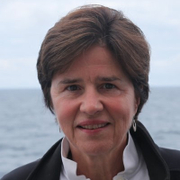- Level Foundation
- Duration 12 hours
- Course by University of Copenhagen
-
Offered by

About
The UN predicts we will be 9-10 billion people on Earth in 2050. Providing so many people with nutritious foods is a massive challenge and one that cannot be met by simply upscaling current practices regarding food production and consumption. Providing humanity with nutritional food is at the center of all decisions related to sustainable development. Agriculture is responsible for 80% of global deforestation. The food systems release 29% of global greenhouse gasses. We use an area equivalent to North and South America combined for the production of meat for consumption or to produce the food necessary to feed the animals we eat. 70% of fresh water use is related to agriculture. These figures are staggering, and they show us, that we need to rethink and transform the way we produce, distribute and consume food worldwide. This course focuses on how food systems can become more sustainable. It consists of four modules where each focuses on an essential ingredient towards developing more sustainable food systems: (1) Boosting the small, (2) Transforming the big, (3) Losing less and (4) Eating smarter. In each of these key areas, we will meet people from different countries around the world, who labor every day to find and spread solutions that work. Connecting the challenges that must be overcome to develop a sustainable global food system with the solutions being developed by the amazing group of people you meet in this course has been a huge source of inspiration for me. I truly believe that the global food system can be transformed to sustainably meet the needs of 9-10 billion people and, with this course, I dare you to join me!Modules
Week 1
1
Assignment
- Week 1
1
Discussions
- The food system and its links
1
Videos
- Transformation of the global food system - Introduction
4
Readings
- Agriculture and planetary boundaries
- TED talk (Video): Kate Raworth – A healthy economy should be designed to thrive, not grow
- Additional material - Global Sustainable Development Report 2019
- Additional material - Jevon's paradox
Week 2
1
Assignment
- Week 2
1
Discussions
- Counterproductive trade distortion?
5
Videos
- Increasing know-how
- Natural nitrogen fixation
- Better access to finance
- Sharing economy
- A more fair trade system
Week 3
1
Assignment
- Week 3
1
Discussions
- Agriculture and deforestation
3
Videos
- Goal-based planning
- Sustainable soils
- Closed-system farming
2
Readings
- The connection between agriculture and deforestation
- Overview over global agricultural land use
Week 4
1
Assignment
- Week 4
1
Discussions
- Agroecology
3
Videos
- Transport and storage
- Connecting producers and consumers
- Resilience
1
Readings
- From Uniformity to Diversity
Week 5
1
Assignment
- Week 5
1
Discussions
- What to eat?
4
Videos
- Replacing meat
- Changing habits
- Citizen-driven transformation
- Improving aquaculture
1
Readings
- Focus on what you eat, not whether your food is local
Week 6
1
Assignment
- Week 6
1
Discussions
- What will it take to achieve the transformation?
1
Videos
- Conclusion: What does transformation really mean?
1
Readings
- How to Sustainably Feed 10 Billion People by 2050?
Auto Summary
"Transformation of the Global Food System" is a foundational course in Science & Engineering, led by Coursera. It tackles the immense challenge of sustainably feeding 9-10 billion people by 2050. The course dives into sustainable food systems through four modules: boosting small-scale efforts, transforming large-scale practices, reducing waste, and smarter consumption. Featuring real-world solutions from global innovators, this 720-minute course is available via Starter and Professional subscriptions. Ideal for those passionate about sustainable development and food security, join to understand and contribute to transforming our global food systems.

Katherine Richardson

